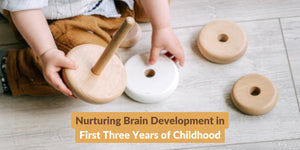As kids grow up, they go through a phase in which they become very picky about eating food. Picky or fussy eating occurs when a child prefers to eat the same foods over and over again and refuses to try new foods. It is frequently very frustrating for the parents. You may be concerned that they are not getting enough nutrition, but picky eating is very common between the ages of two and three. It is usually a child's way of asserting their independence. Keep reading for food tips for fussy toddlers.
Should I visit a doctor because of my child’s fussy eating habits?
Your child’s growth slows down in the second year of their life. They are also constantly learning new skills, such as talking, running, and climbing, which causes them to cling to the familiarity of eating the same foods. Only a few children are extremely fussy eaters who continue with these habits in the later stages of their life. Signs that your child is an extremely picky eater are:- He/she takes a very long time to make even a tiny change in their eating habits. The parents require new or innovative strategies to convince them.
- They eat fewer than 20 different foods.
- They become easily upset about trying new foods or noticing some changes in their favourite foods.
Tips to take care of a fussy/picky eater
If your child is a picky eater, you should try to remain calm and focus on providing them with healthy food options. Some tips on how to get a picky toddler to eat are as follows:- Have family mealtimes as much as possible. Serve your child the same meal that is made for other family members. Also, including one food that your child likes in every meal tends to make them happy.
- Children often like to follow everyone around them. Eat a variety of healthy foods yourself, which will increase your child’s willingness to try out those foods.
- Distractions such as TV or mobile phones should be avoided while eating.
- Avoid having fights with your child about food. Let your child listen to their bodies and choose the quantity of food they want to eat. Your focus should be on choosing the foods you serve.
- Do not establish a reward system. Giving them deserts as a reward for finishing their meal will develop unhealthy habits. Also, they may start asking for a reward for other things (e.g., brushing their teeth).
- Keep trying to feed your child new, healthy foods. It usually takes 10–15 tries for a child to accept a new food.
- Serve new foods along with a portion of the food that your child likes.
- Allow your child to settle down for 15-20 minutes before serving food. This will prepare them for mealtime.
- The addition of herbs and spices enhances the taste of the food. Cut vegetables in different shapes such that your child will find them interesting. You can also try serving different healthy dips such as ketchup, hummus, and curd.
- Involve your child in preparing a meal. Allow them to choose fruits and vegetables. Simple tasks such as washing and cleaning fruits and vegetables, stirring and counting ingredients increase the child’s curiosity. Touching and smelling the food can also be promoted. This will make them comfortable and develop an interest in eating the meal.
- You don't have to go out of your way to make different picky eater baby recipes. Instead, make traditional recipes differently. For example, make fruit shakes, cut sandwiches in various shapes, get colourful eating plates for children, and switch green-coloured vegetables for yellow or orange-coloured vegetables.
Most fussy eaters are healthy, and their eating improves as they grow up. You should only visit a doctor if your child’s fussy eating affects their normal growth and health.
Specialists who can help with your child’s extremely fussy eating are:
- Paediatricians
- Speech and language therapists
- Occupational therapists
- Psychologists
- Dieticians
Children aged two to three years are busy exploring the world around them, which means eating could be way down on their list of preferences. As long as they are healthy and happy, there is no reason to worry. However, you can always talk to your child’s doctor if you feel you need help.
Searching for recipes to build your baby's appetite? Head to your BabyG App to get complete access to 1000+ Development Activities, Milestones and Growth Reports, Meal Plans, Recipes, Bedtime Stories, Tips and a global Community of likeminded parents.
References
- NHS. Help for children who are fussy eaters.[2019]
- Zero to Three. How to handle pick eaters [2021]
- American Academy of Pediatrics. 10 Tips for parents of picky eaters [2018]
- American Academy of Pediatrics. How To Please Fussy Easters [2020]













LEAVE A COMMENT